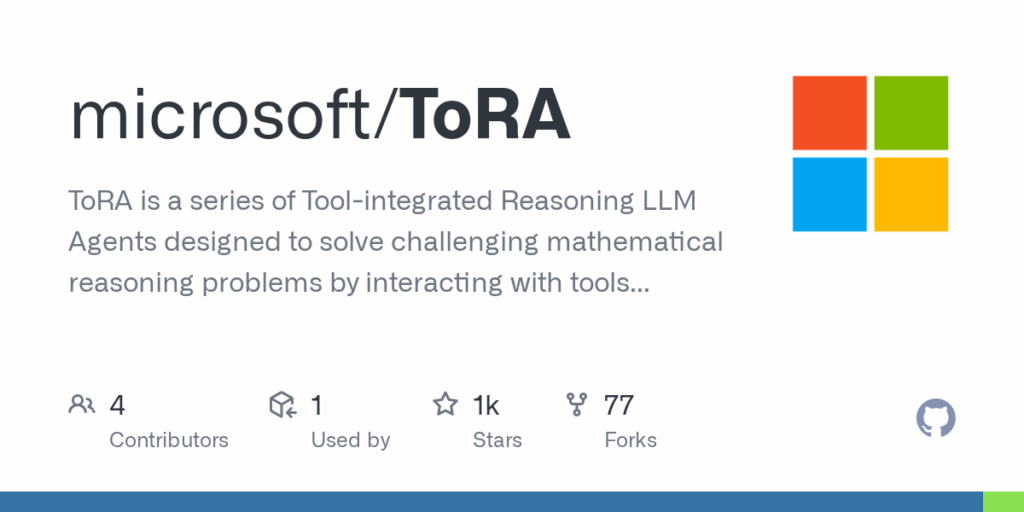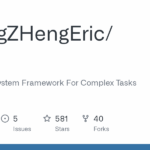ToRA
Basic Information
This repository hosts ToRA, a research codebase and model suite for tool-integrated reasoning agents aimed at solving challenging mathematical problems. It provides the implementations, training pipeline, evaluation logic, example data, and released model checkpoints associated with the ICLR 2024 paper. The project focuses on agents that interleave natural language reasoning with programmatic tool calls to computation libraries and symbolic solvers. The repo includes instructions and scripts for setup, inference, evaluation, and training so researchers can reproduce experiments, run the provided models, or construct their own datasets. It also publishes model outputs and points to released models on model hubs, enabling replication and analysis of the reported results.








